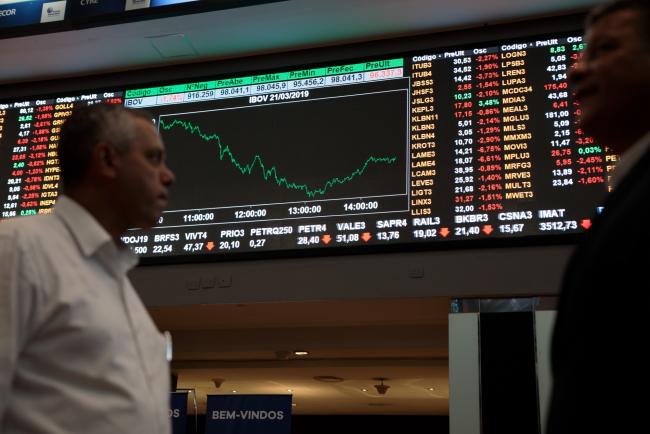(Bloomberg) -- Brazilian assets extended losses Friday on concern that plans to overhaul the pension system, seen as key in fixing the country’s fiscal accounts, will be bogged down in a political quagmire for months.
The arrest of former President Michel Temer and one of his cabinet members sent shock-waves through the nation’s capital Thursday and cast a shadow over negotiations on the pension bill. Local media reported Friday that Lower House Speaker Rodrigo Maia, a key ally in getting the controversial bill passed, was threatening to walk out on negotiations.
“Investors that were already feeling jittery about the bill’s passage are now starting to wonder if we’ll see yet another failure on this front,” said Ilya Gofshteyn, a strategist at Standard Chartered (LON:STAN). “This likely makes the eventual passage of the reform both more tenuous and less substantive.”
The real fell as much as 2.8 percent, erasing gains for the year, while the Ibovespa dropped 2.7 percent, one of the biggest drops among major benchmarks. Bond risk measured by five year credit-default swaps rose for a third day, on track for the worst week since August. The selloff also comes amid a broad slide in emerging markets after disappointing data in Germany sparked concern over weak global growth.
“The reaction in prices is clearly a reflection that the market is super long Brazil,” said Sean Newman, a portfolio manager at Invesco Advisers in Atlanta. “It’s a typical rush through the needle-hole-sized exit.”
Maia’s apparent discontent with the government isn’t the first hiccup the reform suffered this week. The proposal presented by President Jair Bolsonaro’s administration to overhaul military pensions was seen as too lenient, which could complicate approval for the broader reform. Moreover, procedures in the first committee in the Lower House to analyze the pension bill were delayed as newspapers reported no lawmaker wants to be in charge.
Still, investors and political analysts say it’s too early to say the reform is dead.
Investors have seen this before. In May 2017, the government was close to getting enough support for its pension bill after months of negotiations, when tapes of then-President Temer allegedly endorsing the payment of hush-money to the imprisoned former speaker of the lower house of Congress emerged. The scandal sent markets tumbling, triggering circuit breakers as investors fled on the prospect of another government change. Temer survived, but spent the rest of his term fighting off corruption charges.
“We are turning a bit more cautious," said Delphine Arrighi, a money manager at Old Mutual in London. “We always knew negotiations would be difficult and it looks like the negotiations are now starting in earnest. We believe the future of the reform does not depend so much on Maia, but on the government’s ability to adjust its proposal.”
